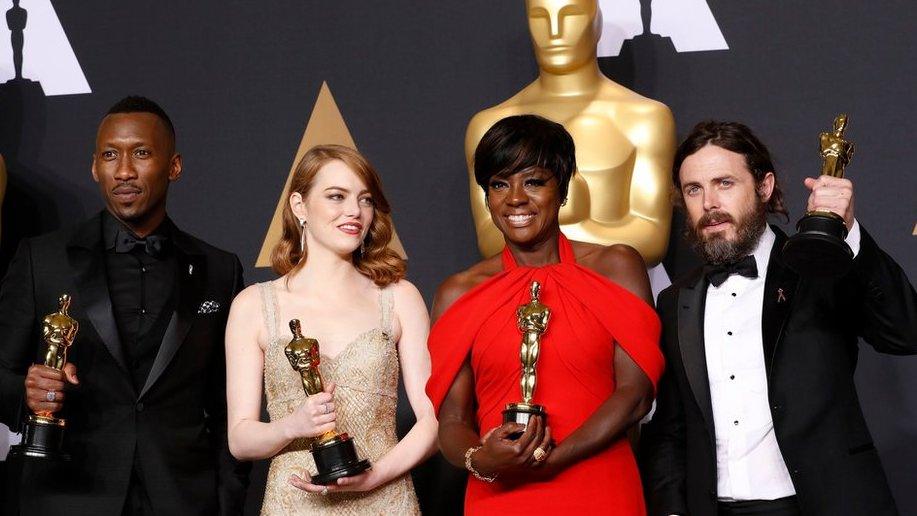The harsh realities of the Oscars acceptance speech
- Published
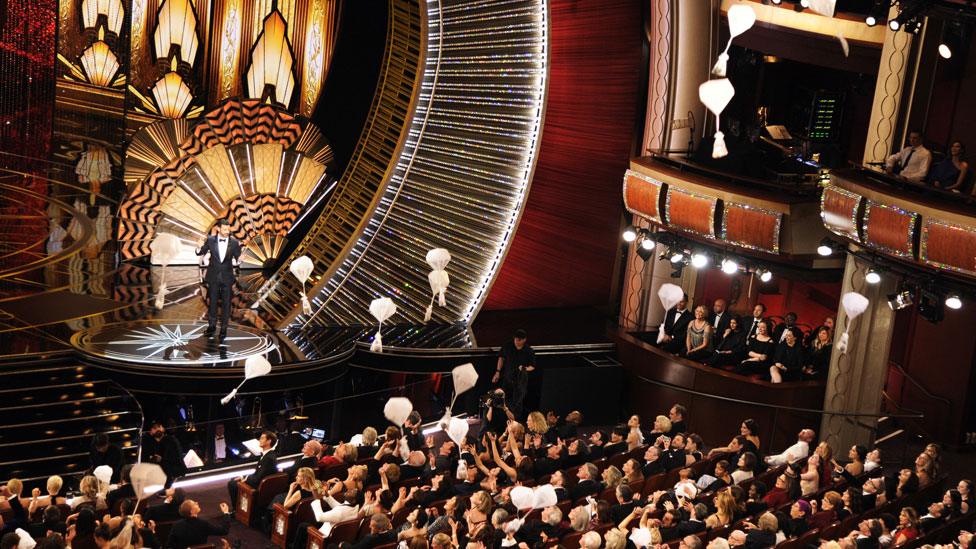
The view from the gods at this year's Academy Awards
Here is the scenario. You are sitting in the Dolby Theatre on Hollywood Boulevard at the end of February in 2020. It is Oscars night and you have been invited.
Not as a plus one, or as a makeweight in a corporate sponsorship deal, but in your own right as an artist. After years of working in an edit suite/behind a camera/in the wardrobe department, your work has finally been recognised by your peers.
You are in a state of heady excitement. Film stars abound, and you can even see some of them in the flesh at the front of the theatre stalls from your spot in the gods.
You can actually see Meryl Streep. You are in the same theatre as Meryl Streep. You are invited to the same party as Meryl Streep. Gosh.
And then an impossibly famous, multi award-winning director - who hasn't worked in a while - opens an envelope in your particular craft category, pulls out the card and reads your name out. Double gosh.
You are delirious, unable to focus and unsure what you should do next. You start to panic. And then you remember an article you'd read a few years ago on the BBC website about what to do in this very situation.
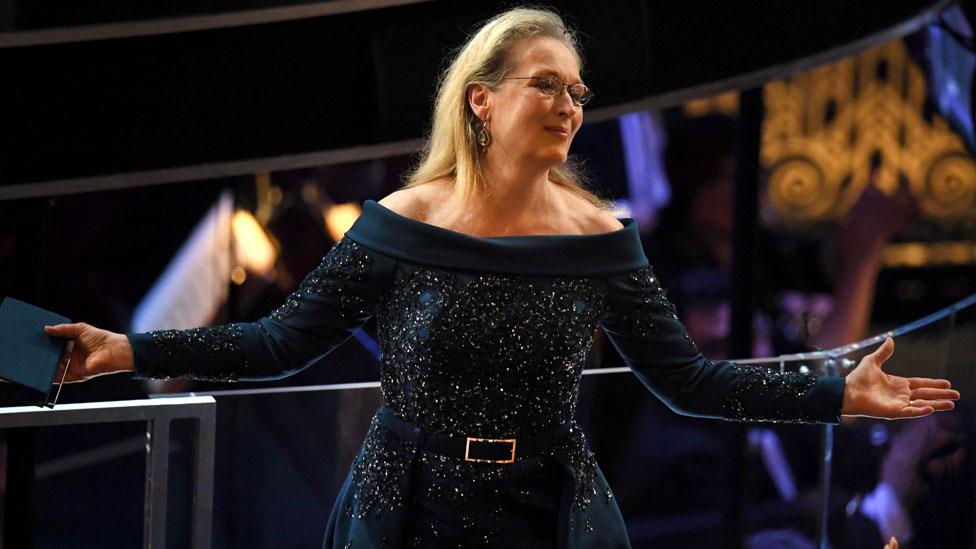
Meryl Streep soaks up the applause during Sunday's ceremony
At the time you thought it trite and couldn't understand why the esteemed corporation was publishing such rubbish, but no longer. This is what it said:
The stage time for an Oscar-winning acceptance speech is 45 seconds. (Unless you're a triple-A list bona fide star, in which case time stands still.)
The countdown starts THE MOMENT YOUR NAME IS READ OUT. So any hugging of loved ones or back-slapping of collaborators soaks up precious seconds. (There'll be plenty of time for all that later anyway, when you realise you don't know anybody at the Governors Ball.)
Head off to the stage sharpish, grab your Oscar from the has-been director and walk to the microphone. When you look up, you'll see a huge digital prompt screen counting down your seconds.
You will probably have around 30 seconds left to thank all the thousands of people who have supported you and your career to the point where you're now picking up an Oscar. Don't panic.
Thank your studio, colleagues, partner, kids and parents. That is the basics done, by which time you will be down to your last 10 seconds to say something profound, or memorable, or funny. (This doesn't happen much anymore.)
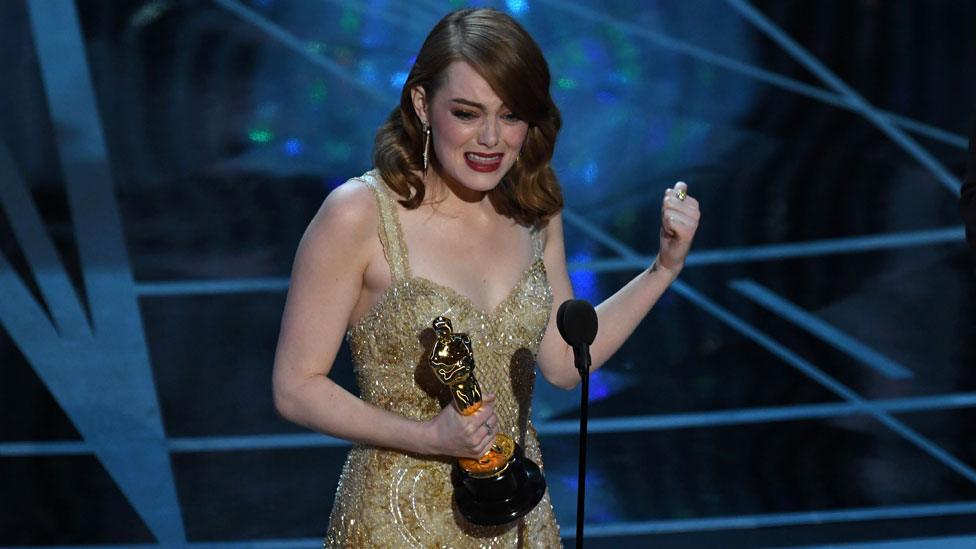
Only A-listers like Emma Stone have no fear about being played off stage
DO NOT waste this valuable time telling the glamorous audience how heavy the little gold statue is. (They know.) Instead focus on your moment.
But be quick. As soon as your time is up, the digital screen starts aggressively flashing the words "WRAP UP".
And if that is not sufficiently off-putting, there will be an old guy to the side of the stage, in all likelihood wearing a pair of white gloves, manically making "get off!" gestures with his arms.
At this point you have one, maybe two seconds to cement your moment in a beautifully honed aphorism.
Hang around any longer and you'll suffer the indignity of being drowned out by the orchestra as the event director instructs the conductor to drum you off stage. There is no way back from this point. Any more lurking is both unseemly and career harming. Take the hint, walk away.
The after parties should be fun (from a freebie point of view), but you probably won't see any real stars. They will be there, but not to hang out with the likes of you. They'll be squirreled away in a snazzy backroom to which you are most definitely not invited.
Frankly, you are lucky to be there at all.
- Published27 February 2017
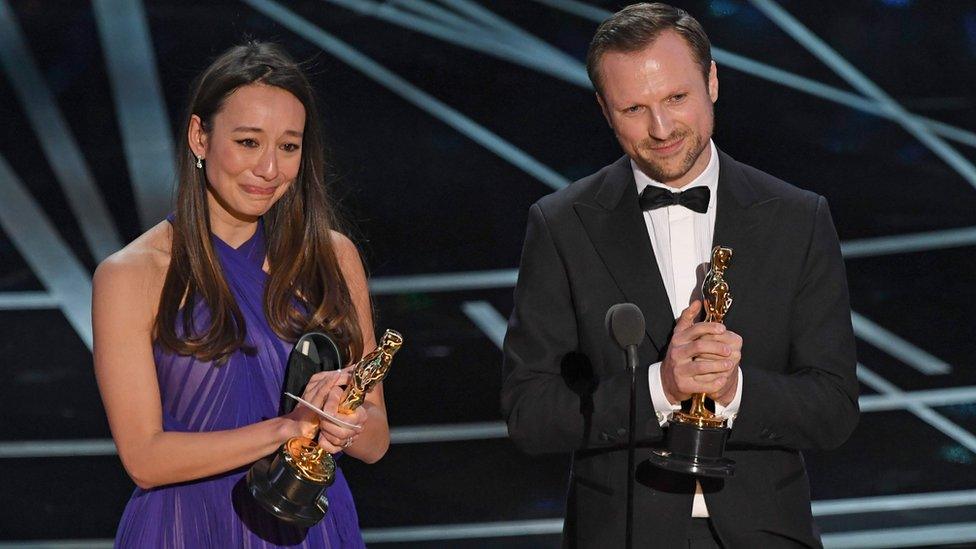
- Published27 February 2017
